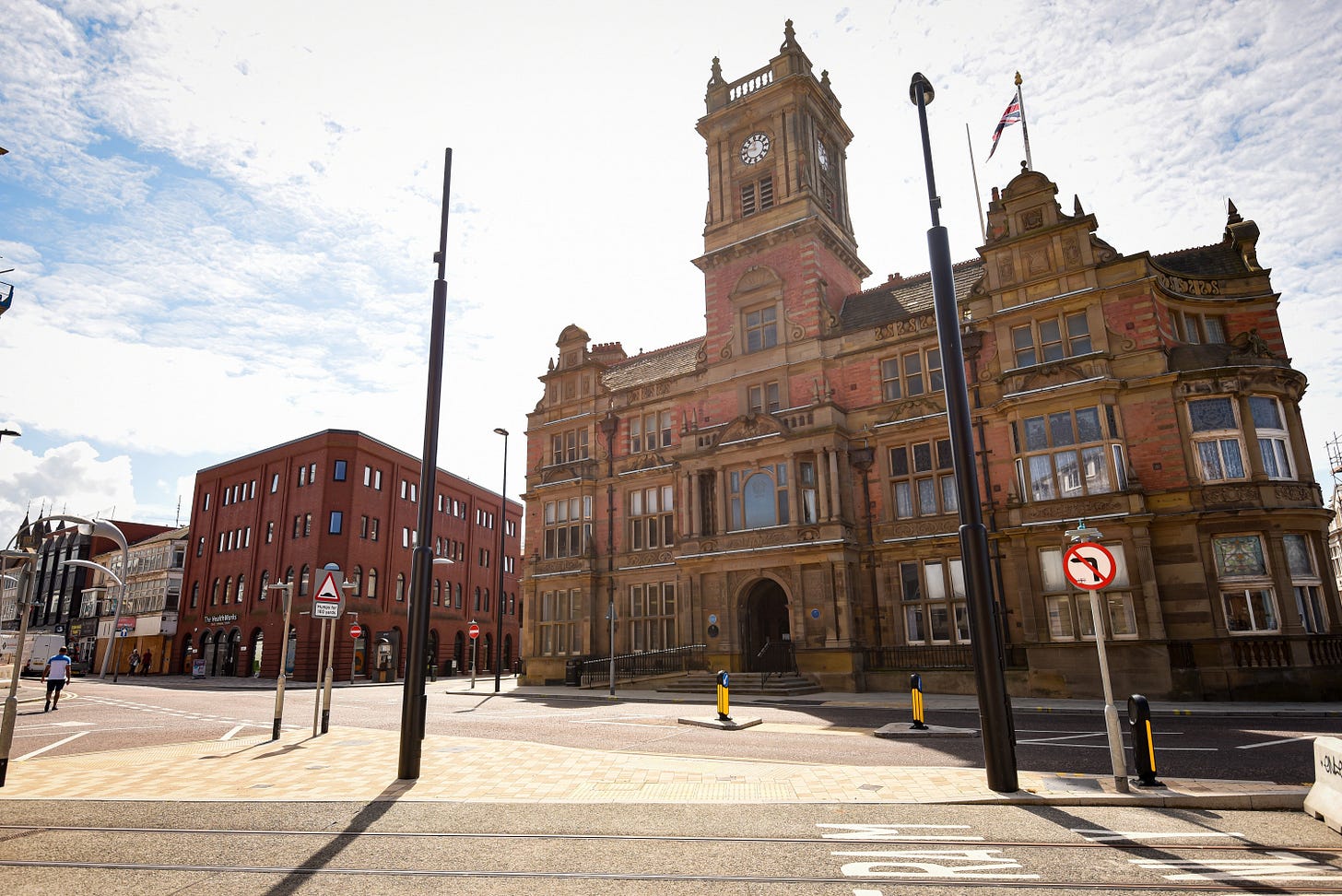Council tax is broken and nobody is shafted more than Blackpool
PLUS: Reform UK's bold and controversial plan for hospitality in Blackpool
Hello and welcome to the midweek edition of The Blackpool Lead.
Today we focus on the disparity in council tax bills between somewhere less affluent like Blackpool - and some of the most financially doped areas of the country.
There are calls to shake-up council tax and how property generally is taxed thanks the bizarre and unfathomable fact that there are millionaires dossing around London paying less.
We also examine a string of policy announcements from Reform UK’s Mark Butcher, who most recently was their candidate for Blackpool South. He lost out to Chris Webb at the general election (and in a by-election shortly before after Scott Benton was kicked over the fence) but will likely fancy his chances the next time people have the chance to vote.
Need for council tax reform has never been clearer
By Luke Beardsworth
The Spring Statement caused widespread concern due to its potential impacts on the most vulnerable people in society - and in Blackpool.
Both of Blackpool’s MPs, Chris Webb and Lorraine Beavers, have vowed to vote against the cuts to PIP due to the impact they are forecast have on disabled people.
But it’s raised the question of why the government doesn’t instead choose to fix one of the most regressive tax systems out there - council tax.
Because in England, people living in the most expensive houses pay the least amount of annual property tax.
As council tax rises again, the average band D council tax for England will soon be £2,280. But for London’s most expensive boroughs, the figure is much lower. In Westminster, home to the famous Belgravia and Eaton Square (also known as the Red Square, due to its numerous Russian billionaire residents), residents in band D properties will pay just £1,019 annually — less than half of the national average. In Kensington and Chelsea, residents will pay £1,591.59, around 30% lower than the average.
In Knightsbridge - home to the UK’s most expensive street where it costs on average £20.35 million to live, they pay £1,946.32 to live in the most expensive band. The same bracket in Blackpool is an eyewatering £4,784.42.
For a £110,000 home on the Grange Park estate, that’d be £2,126.41 - more than the most expensive homes in the country.
Chris Webb, MP for Blackpool South, told The Blackpool Lead: “The need for council tax reform has never been clearer. Rich councils collect far more from higher band properties and business rates than places like Blackpool, yet struggling areas are forced to hike council tax to the maximum just to make ends meet.
“Labour is tackling this with a three-year settlement for councils, but what we really need is a fair, progressive new council tax system that ensures those with the broadest shoulders pay their fair share.”
Lynn Williams, the leader of Blackpool Council, told The Blackpool Lead: “Council tax is a regressive form of taxation and the system is in desperate need of change. It raises different amounts of money in different parts of the country, is unrelated to need; and based on 1991 property values that have not been revalued since, and I think everyone would agree that the world is a very different place than in 1991. I pay more for my band C home in Blackpool than a band G property in Westminster. This is in Westminster, in the middle of London, one of the wealthiest boroughs, in one of the wealthiest cities, in the world.
“The system penalises poorer communities in the North and benefits wealthier communities elsewhere. It’s an absolute mess and is long overdue for reform. The government financial settlement this year was a great start to fairer funding for local authorities in areas like ours but full equalisation of council tax is needed to ensure that grant funding levels fully reflect an area's ability to raise local income and its residents ability to pay. I look forward to the fair funding review.”
A proportional property tax would see homes charged at a flat rate of their current value. While considerations would need to be made to accommodate cash-poor, asset-rich households, and ensure the cost wasn’t passed on from landlords to tenants, estimates found that a simple tax of 0.48% (or 0.96% on second homes) would raise about an extra £5bn a year for the Treasury. This, coincidentally, is the same amount Chancellor Rachel Reeves is cutting disability and health benefits by.
We’re delighted to say Cosy Homes in Lancashire is supporting independent, in-depth journalism in Lancashire by sponsoring The Blackpool Lead and The Lancashire Lead. Discover how they can help you improve energy efficiency in your home and keep it warmer.
News in headlines 🗞️
Blackpool Transport issues warning as scam offering fake £2 unlimited travel passes continues to circulate (The Gazette)
Blackpool no longer has highest rate of children in care (LancsLive)
Drunk driver who killed man and seriously injured two others after crashing into tree in Ansdell jailed (The Gazette)
£10 illuminations fee among Reform UK plans scolded as ‘shockingly ill-conceived’
By Jamie Lopez
Proposals from the man who wanted to be Blackpool South MP and now chairs the town’s Reform UK branch have been branded harmful and “shockingly ill-conceived”.
Mark Butcher, who was beaten by Chris Webb in a by-election and the General Election last year, has used his social media to suggest ideas such as a £10 fee for any cars visiting the Blackpool Illuminations and shortening the time period the displays operate for.
The latter suggestion would be a reversal of the extension to the Illuminations which was brought in in 2020 and has been hailed as a key driver of additional footfall in the town.









